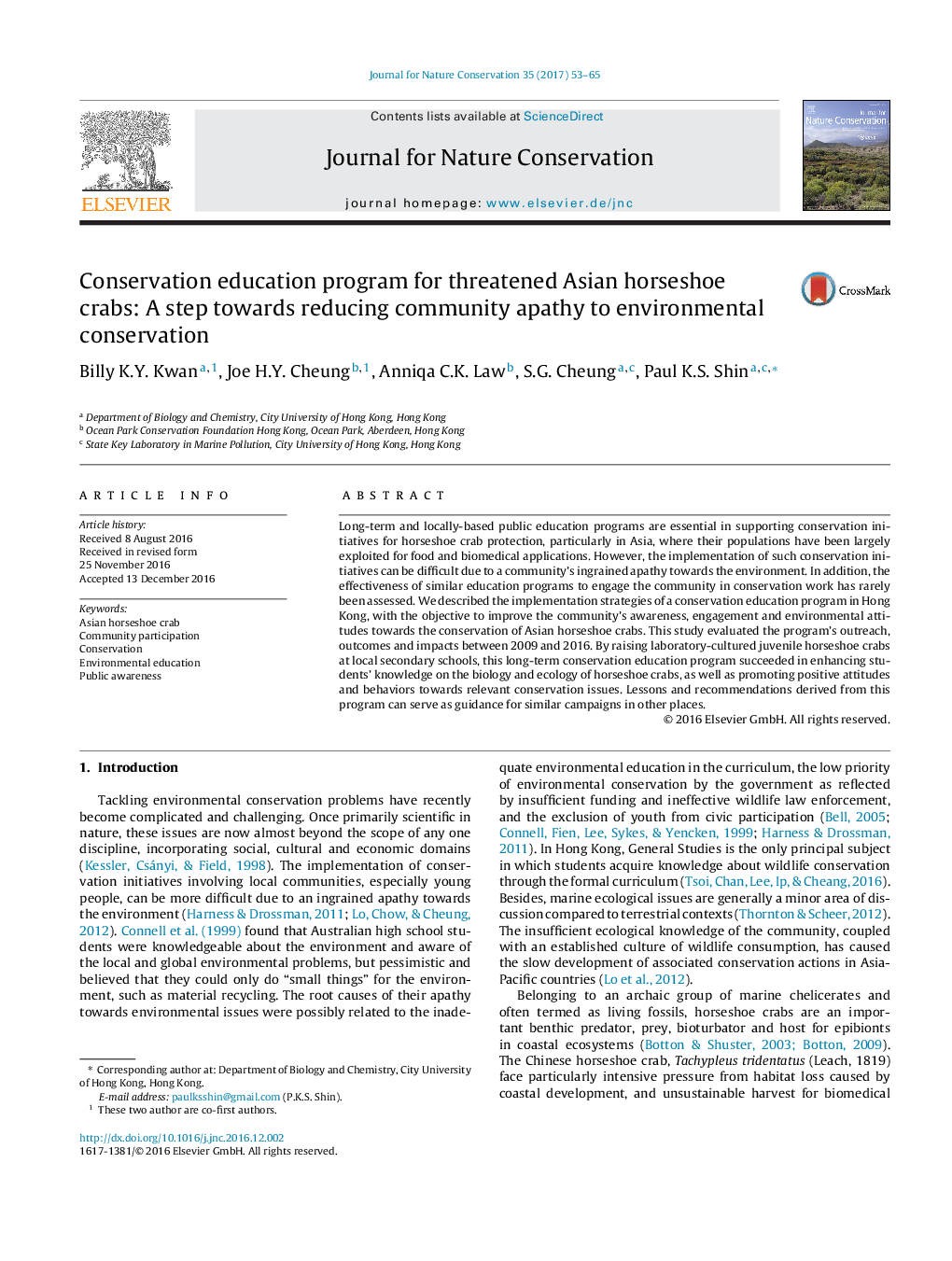| Article ID | Journal | Published Year | Pages | File Type |
|---|---|---|---|---|
| 5744813 | Journal for Nature Conservation | 2017 | 13 Pages |
Long-term and locally-based public education programs are essential in supporting conservation initiatives for horseshoe crab protection, particularly in Asia, where their populations have been largely exploited for food and biomedical applications. However, the implementation of such conservation initiatives can be difficult due to a community's ingrained apathy towards the environment. In addition, the effectiveness of similar education programs to engage the community in conservation work has rarely been assessed. We described the implementation strategies of a conservation education program in Hong Kong, with the objective to improve the community's awareness, engagement and environmental attitudes towards the conservation of Asian horseshoe crabs. This study evaluated the program's outreach, outcomes and impacts between 2009 and 2016. By raising laboratory-cultured juvenile horseshoe crabs at local secondary schools, this long-term conservation education program succeeded in enhancing students' knowledge on the biology and ecology of horseshoe crabs, as well as promoting positive attitudes and behaviors towards relevant conservation issues. Lessons and recommendations derived from this program can serve as guidance for similar campaigns in other places.
